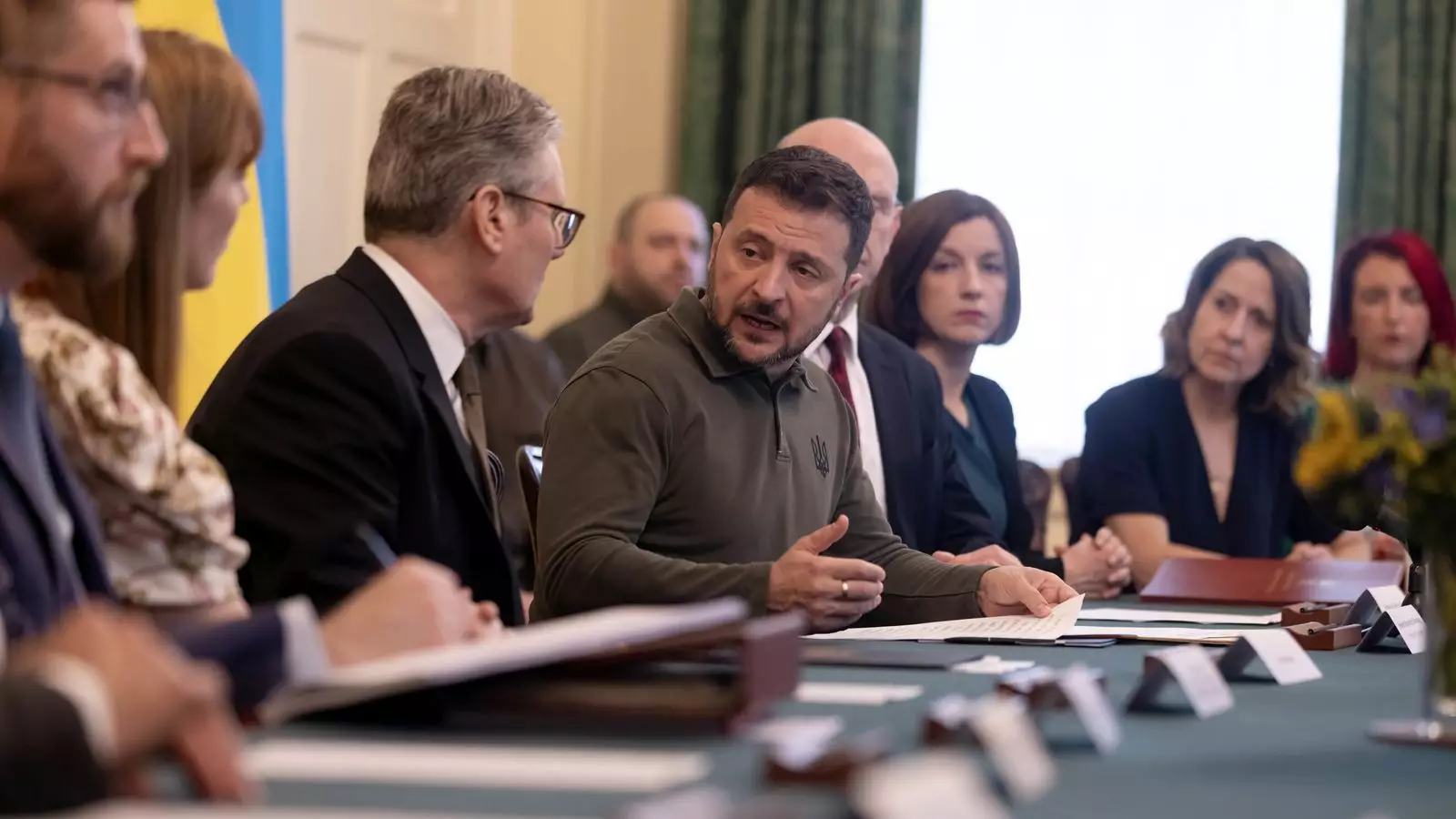The heightened tensions in global politics have illuminated the critical nature of defense spending. Recent statements from government officials, particularly from Chancellor Rachel Reeves and Business Secretary Jonathan Reynolds, suggest an emergent consensus within the UK government regarding the pressing need to bolster the nation’s defense budget. Reynolds articulated this sentiment on Sky News, asserting that there is broad recognition across government ranks about increasing expenditure on the armed forces. He emphasized that “the whole cabinet” is aware of the pressures encompassing the international landscape and deemed increased defense spending necessary for national prosperity.
While debates surrounding defense budgets often provoke disagreements, Reynolds’s comments specifically rejected the notion that Prime Minister Keir Starmer would usurp the Chancellor’s decision-making authority regarding defense allocations. This situation reflects the intricate balancing act within government, where delineating responsibilities and fostering cooperation is integral to addressing national security concerns.
Current discussions reveal a landscape where defense spending is yet to reach an ideal benchmark. The UK’s target is pegged at 2.5% of GDP, but recent reports indicate that expenditures hover around 2.3%, with no decisive timeline for improvement. Discussions have become increasingly pertinent as Admiral Sir Tony Radakin and other military leaders advocate for a spending increase to 2.65% of economic output. Their intentions underscore the urgency felt within military circles for substantial investment in defense capabilities.
Nevertheless, internal government dynamics complicate these ambitions. Reports have indicated reluctance from Chancellor Reeves to allocate further funds for defense this fiscal year, despite her acknowledgment of its significance. There appears to be a web of conflicting interests within the government, which, if left unresolved, could hinder the response to looming threats and alignments.
The evolving geopolitical environment influences national defense strategies profoundly. As discussions unfold about peace negotiations involving Ukraine, the reality of shifting alliances and priorities becomes evident. Recent statements from former U.S. President Donald Trump regarding negotiations between Russia and Ukraine, absent key Ukraine officials, illustrate the precarious balance of power that European leaders must navigate.
This geopolitical pivot necessitates that NATO members, including the UK, reassess their defense spending in light of changing dynamics. Experts, such as Rachel Ellehuus from the Royal United Services Institute, urge a re-evaluation of the adequacy of NATO’s 2% spending guideline, calling for an urgent response from member states to invest in both conventional and innovative military capabilities. As global focus shifts, the call for a proactive defense posture becomes unequivocally clear.
With ongoing discussions and looming crises, this moment presents a unique opportunity for Sir Keir Starmer and his administration to lead on defense matters. This imperative was encapsulated in a recent statement from the Prime Minister, where he articulated the necessity for the UK, US, and European nations to collaborate effectively. Highlighting the concept of a “once in a generation moment,” he cautioned against complacency and division within alliances, emphasizing the need for Europe to assume a more coordinated role in addressing these multifaceted challenges.
As Sir Keir prepares to engage in discussions in Paris and Washington, he is positioned to advocate for a more comprehensive review of defense strategies and spending priorities. By aligning UK defense objectives with broader NATO goals, the administration can not only enhance national security but also reassure allies of Britain’s commitment to collaborative security efforts.
The calls for increased defense spending underscore a stark reality: the world is witnessing significant instability and unforeseen challenges. The UK government finds itself at a critical juncture where decisive action on its defense budget could bolster both national security and international standing. As political discussions persist, it is vital that leaders prioritize the strategic needs of the armed forces and fortify legislative support for enhanced funding.
The road ahead will require unified resolve among government officials and, most importantly, an acknowledgment that in a rapidly changing world, robust defense spending is not just a policy choice but a necessity for safeguarding the nation’s future.

Leave a Reply